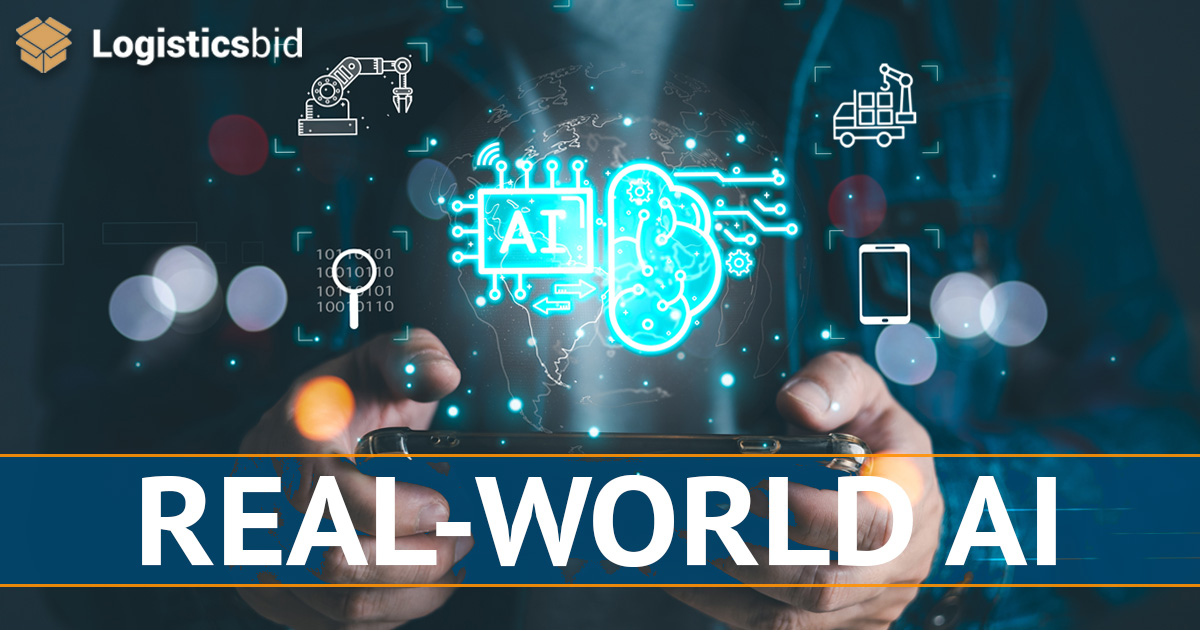
Artificial Intelligence (AI) is reshaping various industries around the world, and the Philippines is no exception. From enhancing security systems to revolutionizing transportation, healthcare, manufacturing, agriculture, logistics, and urban planning, AI transformation affects the way we live and interact with the physical environment.
This article delves into how real-world AI is being utilized across different sectors in the Philippines and the profound impact it is having on everyday life.
Security Systems: Enhancing Safety with Real-World AI
With the rise of real-world AI-powered security systems, the safety of homes, workplaces, and public spaces in the Philippines is reaching new levels.
How Real-World AI Powers Security
- Facial Recognition: AI cameras can identify individuals in real-time and cross-reference databases to flag unauthorized access. For instance, companies like Coram are utilizing AI-enabled security solutions that employ deep learning to improve identification accuracy.
- Behavior Analysis: Modern security systems can detect abnormal activities such as loitering, sending real-time alerts to property owners or authorities.
- Automated Threat Responses: Systems like Deep Sentinel combine AI with live monitoring to instantly respond to security breaches.
Real-World Impact in the Philippines

Home Security
Devices such as Google Nest have become popular, using AI to differentiate between family members, pets, or potential intruders, thus reducing false alarms.
Public Safety
While globally adopted in cities like London, the adoption in Philippine cities could lead to reduced crime rates, paralleling those observed globally.
Retail Security
Large retailers in the Philippines stand to benefit from AI tools that prevent theft by analyzing shopper behaviors.
The Future of AI in Security
According to MarketsandMarkets, the global AI security market is set to grow significantly, and the Philippines’ demand for smart home and urban surveillance systems reflects this trend.
Autonomous Vehicles: Redefining Transportation
Real-world AI transformation is at the forefront of transforming the transportation industry, particularly through the development of autonomous vehicles (AVs).
How AVs Work
- Perception: Using sensors like LiDAR and cameras to gather data on the surroundings, AVs depend on AI algorithms to process this information.
- Decision-Making: AI models predict traffic behavior for safe navigation.
- Control: AI handles adjustments in acceleration, braking, and steering for smooth driving experiences.
Key Players and Impact
-
Tesla’s Autopilot
Although not yet widely available in the Philippines, similar technologies are paving the way for semi-autonomous driving.
-
Local Innovations
As global companies demonstrate the potential, local makers are inspired to explore similar innovations.
Challenges Ahead
In the Philippines, issues such as infrastructure development and regulatory frameworks are critical to addressing before AVs can be widely adopted, echoing international challenges.
Healthcare: Revolutionizing Diagnostics and Treatment
AI transformation in healthcare in the Philippines with breakthroughs in diagnostics, personalized treatments, and operational efficiencies.
- Medical Imaging: AI systems like Google’s DeepMind are capable of analyzing medical scans with precision akin to top radiologists, making advanced diagnostics more accessible in local clinics.
- Robot-Assisted Surgeries: AI-driven robotic systems are improving surgical outcomes, reducing recovery times, and decreasing complication rates in urban hospitals.
- Drug Discovery and Remote Patient Monitoring: AI platforms expedite drug development and support wearable technology for preventive health care.
Smart Manufacturing: The Rise of Industry 4.0
AI is significantly contributing to smart manufacturing practices in the Philippines, leading the way for Industry 4.0.
Collaborative Robots (Cobots):
These robots automate repetitive tasks in industries such as electronics, enhancing cooperation with human workers.
Predictive Maintenance
AI sensors help avoid equipment failure, reducing downtime in manufacturing plants.
Benefits of AI in Philippine Manufacturing
Cost Savings and Customization
AI reduces operational costs and supports mass customization, benefitting local manufacturers in staying competitive.
Agriculture: Feeding a Growing Population Sustainably
AI is tackling the challenge of sustainable agriculture in the Philippines, aiming to boost productivity while minimizing environmental impact.
Precision Farming and Pest Management:
AI tools enhance crop monitoring and optimize agricultural practices, crucial for sustainable farming in the Philippines’ diverse terrain.
Autonomous Harvesting:
Advanced technology improves efficiency in harvesting, potentially increasing yield and profitability.
Impact
A McKinsey report estimates AI’s potential to dramatically boost agricultural productivity, ensuring food security as the Philippine population grows.
Logistics and Supply Chain: Improving Efficiency
The logistics sector in the Philippines influenced by AI transformation resulted to optimized supply chains, cost reductions, and improved delivery times.
How AI Enhances Logistics Operations
- Route Optimization:
AI algorithms analyze traffic data, weather conditions, and delivery priorities to optimize routes for logistics companies. This leads to reduced fuel consumption and faster delivery times, crucial in a country where urban congestion is a significant challenge. - Automated Warehousing:
AI-driven robotics and systems in warehouses automate sorting, packing, and inventory management, reducing human error and increasing throughput significantly.
Leading Logistics Companies with Innovations
 |
Transportify: Transportify has become a benchmark in how logistics companies can effectively integrate AI into their operations. Specializing in on-demand and flexible delivery services, Transportify employs several AI-driven solutions to improve logistics efficiency and customer satisfaction.
|
 |
Lalamove: Lalamove, renowned for its rapid delivery services, integrates AI to maximize efficiency and reliability.
|
 |
2GO Group Inc.: A dominant force in the logistics and freight industry, 2GO Group leverages AI for its diverse transport services
|
 |
J&T Express: J&T Express is another key player leveraging AI to enhance its logistics operations and customer service.
|
Impact of AI in the Logistics Industry
- Efficiency Gains: AI integration results in substantial efficiency improvements, cost reductions, and enhanced delivery accuracy across logistics operations.
- Customer Satisfaction: AI-driven insights and reliable service improvements help maintain high levels of customer satisfaction, fostering customer loyalty.
- Sustainability: AI facilitates more sustainable logistics practices by optimizing routes and minimizing emissions, aligning with global environmental goals.
Leading logistics companies such as Transportify, J&T Express, Lalamove, and 2GO Group are spearheading the integration of AI into logistics services in the Philippines. By implementing robust AI strategies, these companies are not only enhancing operational efficiency and customer satisfaction but are also setting new industry standards. As AI technology continues to advance, it holds promise for even greater innovations, guiding the logistics sector towards a more intelligent, efficient, and sustainable future.
SEE ALSO:
